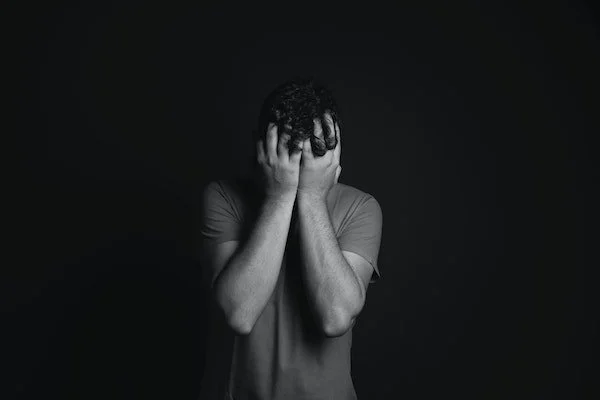
Trauma Therapy
Is Unresolved Trauma Holding You Back From The Life You Want?
Do you often feel fearful, emotionally overwhelmed, or detached? Did you experience trauma as a child that continues to impact how you experience the world? Or maybe trauma as an adult—such as active combat, a natural disaster, or living through an abusive relationship—has led to unwelcome symptoms such as hypervigilance or panic attacks. Are you ready to free yourself from the prison of trauma and get your life back on track?
The aftereffects of trauma can be an insidious and unwelcome companion throughout your life. Despite your efforts to push away painful memories, you can’t shake the sense that you’re never safe or that something bad may happen at any moment. When the fear becomes too much to handle, you might self-medicate with substances, food, or other numbing behaviors to find relief.
The Impact Of Trauma Is Far-Reaching
Perhaps you have built walls of protection around yourself but, in the process, keep others at an emotional distance. Lacking the trust to nurture close relationships, you may have become isolated and cut off from the ones you love.
You might not realize that the chronic physical symptoms you experience—such as insomnia, nightmares, stomach aches, fatigue, and difficulty concentrating—are rooted in trauma. Until you process what is buried deep within your psyche, your body will continue to alert you that all is not well.
But there is hope. Working with a therapist who is trained in gentle yet effective ways to process trauma and PTSD can open you up to a whole new world of opportunities. By utilizing Accelerated Response Therapy, you can break the chains of trauma and renew your sense of self.
Recent Posts
Trauma Doesn’t Discriminate
Trauma has no boundaries regarding age, gender, socioeconomic status, race, ethnicity, or sexual orientation. According to the National Council for Behavioral Health, “70 percent of adults in the United States have experienced some type of traumatic event at least once in their lives.”¹
While it’s common knowledge that trauma and Post-Traumatic Stress Disorder (PTSD) impact those who have served active tours of duty in the military and witnessed first-hand violence, we might not realize that other sources of trauma also exist. We can experience trauma first-hand through a single incident—such as a natural disaster, auto accident, or sexual assault—or prolonged experiences, such as domestic violence, childhood abuse or emotional neglect. It’s no surprise that those who suffer from mental health and substance abuse disorders have often experienced trauma in their lives.
Relational Trauma Can Cause Deep Emotional Wounds
An often-overlooked form of ongoing—known as complex—trauma occurs within abusive relationships. The emotional damage we experience when trust is breached by a loved one can have a long-term effect on our mental well-being. Even after the abuse is over, the impact of it can dismantle our sense of safety, destroy our self-esteem, and make us second guess why we continue to get stuck in dysfunctional relationships. Rather than suppress the painful memory of abuse, we may relive it again and again.
Sadly, when we suffer from trauma, it becomes so deeply embedded within us that we may believe that this is who we are. Misplaced shame and unprocessed emotions can paralyze us, keeping us from seeking the solutions we so desperately need.
The good news is that with the benefit of therapy, you don’t have to suffer from trauma anymore. Effective treatment is available that can help you process trauma without having to reexperience it.
Therapy Offers Effective Ways To Address Trauma Without Reliving it
If you have been struggling to come to terms with relational trauma, childhood abuse, sexual abuse, or PTSD as a result of war or a catastrophic event, evidence-based therapy exists that can drastically improve your quality of life.
During therapy, you are free to share what you’re experiencing openly and honestly, without any fear of judgment. I provide a safe and accepting space regardless of gender, cultural, or spiritual orientation. In addition to providing support and validation to ease your PTSD symptoms, I can help you learn and use new coping skills and mindfulness techniques.
By developing more positive coping skills, you will know how to manage and respond to stress in a healthier way that’s unique to your specific needs. My body-centered approach can help you develop the ability to listen to your body to understand what is a real threat and what is past trauma.
What To Expect In Sessions
To get you comfortable and ready for deeper therapy, we will initially utilize eye movement to help you relax and de-stress. If you were referred to therapy with me through the Veterans Administration or another third party, I will guide our sessions based on the information they provided rather than asking you to describe your traumatic experience to me.
With an individualized approach to treatment, I aim to hone in on your needs without requiring you to do any heavy lifting. Rather than a commitment to “doing the work,” all you have to do is show up to sessions with an open mind and a desire for positive change.
How Accelerated Resolution Therapy Helps Resolve Trauma
I’m excited to share the beneficial results of AR Therapy with you. AR Therapy is rooted in evidence-based psychotherapy and has been proven effective treatment for trauma and PTSD as well as many other mental health disorders.²
What makes AR Therapy unique is that, unlike many therapies used to treat trauma, ART doesn’t require that you relive your trauma by having to talk about it. By utilizing relaxing eye movements and Voluntary Memory/Image Replacement, you will be guided to change the way negative images related to your trauma are stored in your brain.
Within one to five sessions, you can expect your trauma to longer trigger emotional or physical reactions. The effects of AR Therapy are long-lasting, releasing you from the cage that trauma has kept you locked inside. This therapy is also beneficial for children who have experienced either a single traumatic episode or complex trauma.
Trauma counseling is never a one-size-fits-all experience. Depending on what you respond favorably to, we may decide to draw from Cognitive Processing Therapy (CPT), Eye Movement Desensitization Reprocessing (EMDR), or Trauma-Focused Cognitive Behavioral Therapy (TF-CBT) if working with children.
As your emotional and physical responses to trauma diminish, you will feel more confident that you can get through the challenges life brings. As a result, you will be better equipped to handle stress, embrace joy, and live your life with more peace and freedom.
But You May Wonder If Trauma Therapy Is Right For You…
I’m not sure if what I experienced would even be considered trauma.
It’s common for us to downplay what happened to us and not acknowledge that what we experienced was in fact trauma. Trauma is often associated with a one-time event—such as war, a natural disaster, or an accident. However, complex and relational trauma is an accumulation of traumatic experiences that occur repetitively over time. Although relational trauma can be more difficult to identify, it can be every bit as harmful. Whether a one-time event or ongoing trauma has damaged your psyche, trauma and PTSD treatment can help you heal.
I’m afraid to confront painful memories that may re-traumatize me.
If you have tried counseling before to address your trauma, your counselor may have guided you to relive your trauma as a means of processing unresolved emotions. However, this experience may have dredged up painful memories and caused you further distress. The good news is that with AR Therapy, you won’t have to re-experience your trauma. Rather than access the memory, you will be guided through a visualization process that opens a window where you can select favorable changes that you would like to make to the traumatic memory.
Will I feel like myself again after trauma therapy?
Trauma is a thief that steals your lifeforce. As a therapist who specializes in trauma, I understand the emotional pain you’re in and how hard it can be to reach out and ask for help. But I'm glad you are looking to take this huge step in the right direction—I’m here to help you recover from whatever you have been through. Life does not have to be a constant struggle anymore.
It's Possible To Live Without Trauma Haunting You
Trauma therapy can help you relax so you can be present in your life again. I specialize in trauma treatment in Columbia and throughout Missouri via telehealth and am here to help you heal from the past. If you would like to find out more about trauma therapy with me, please call 573-220-8366 or visit my contact page.






